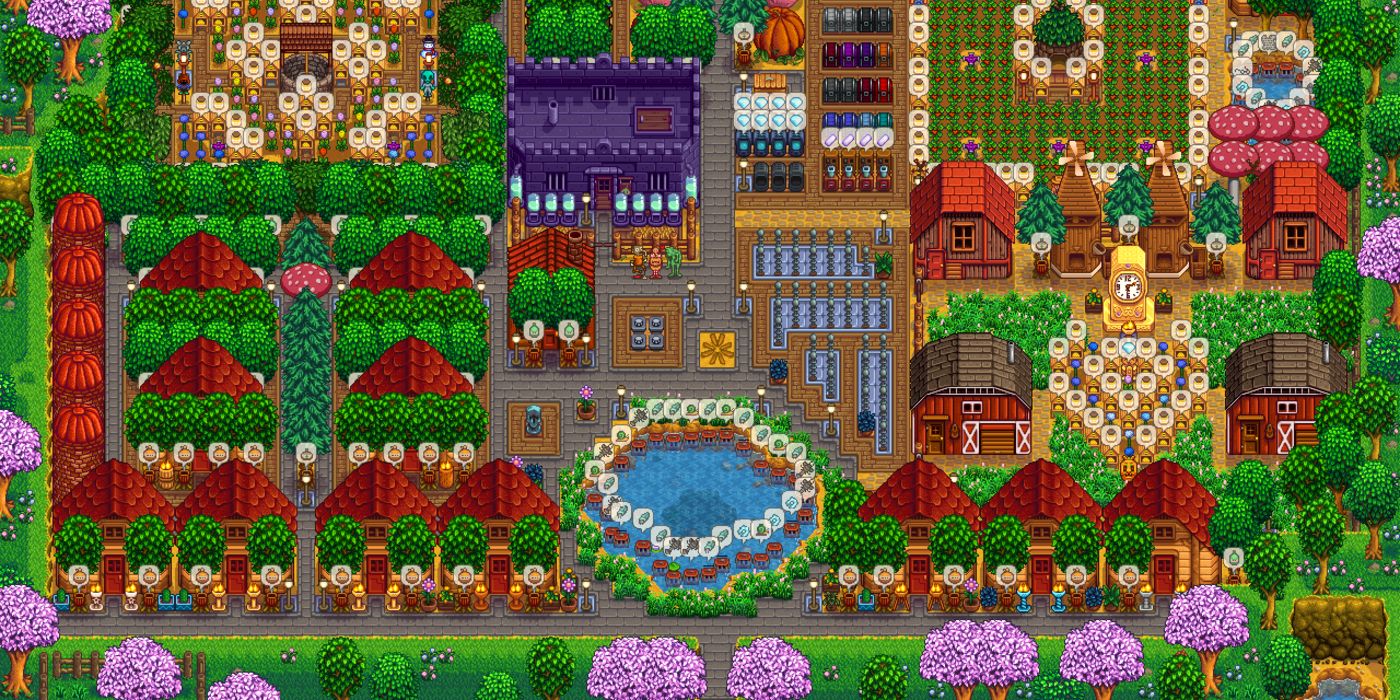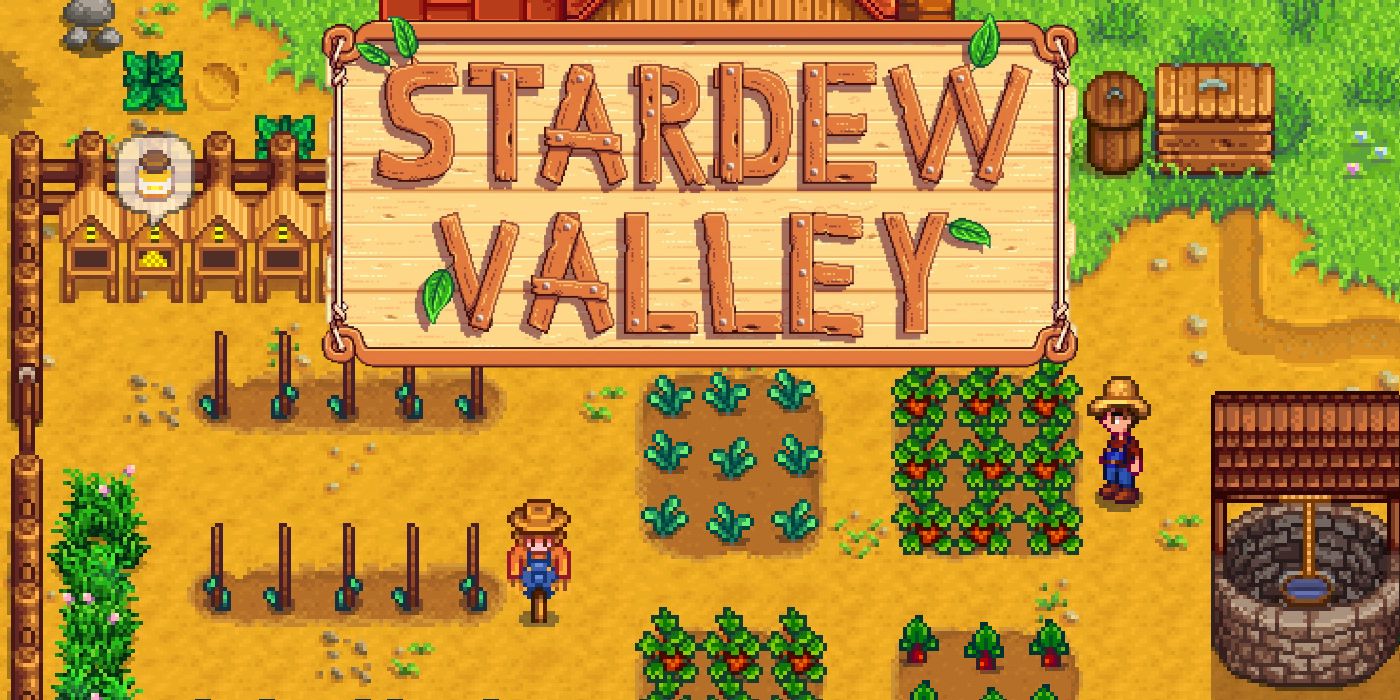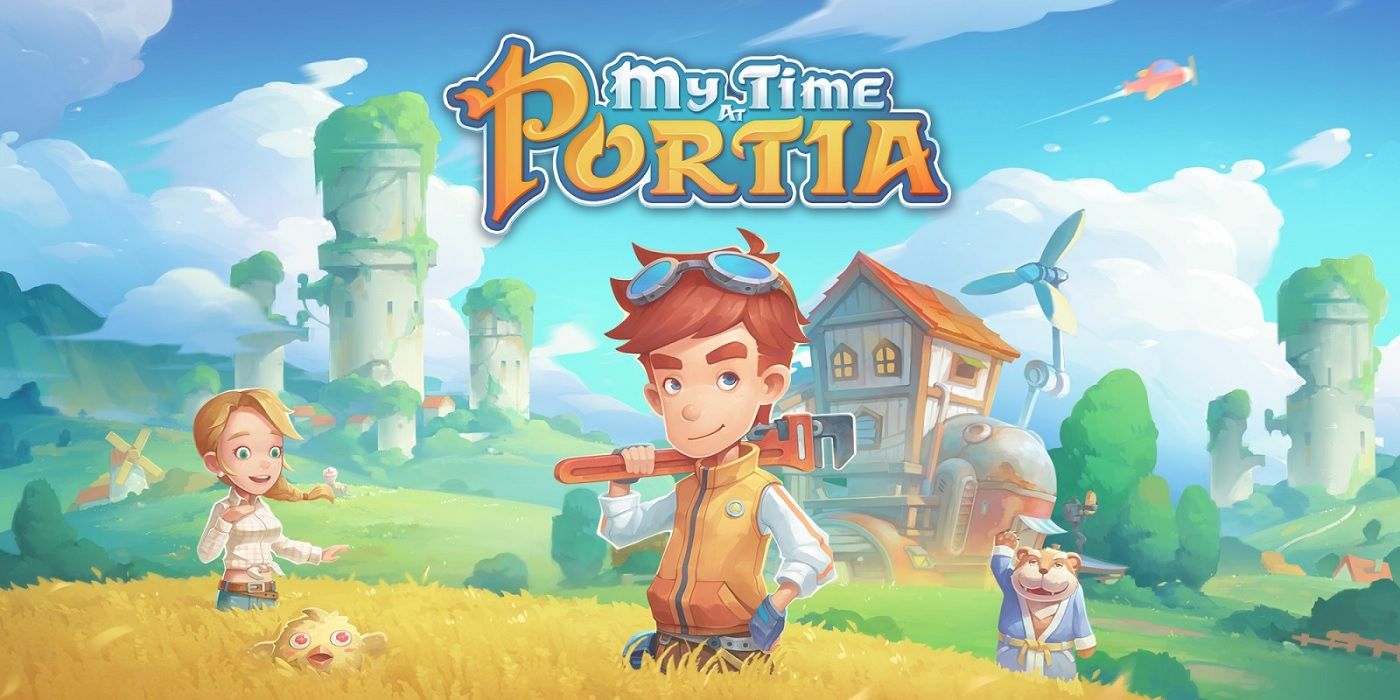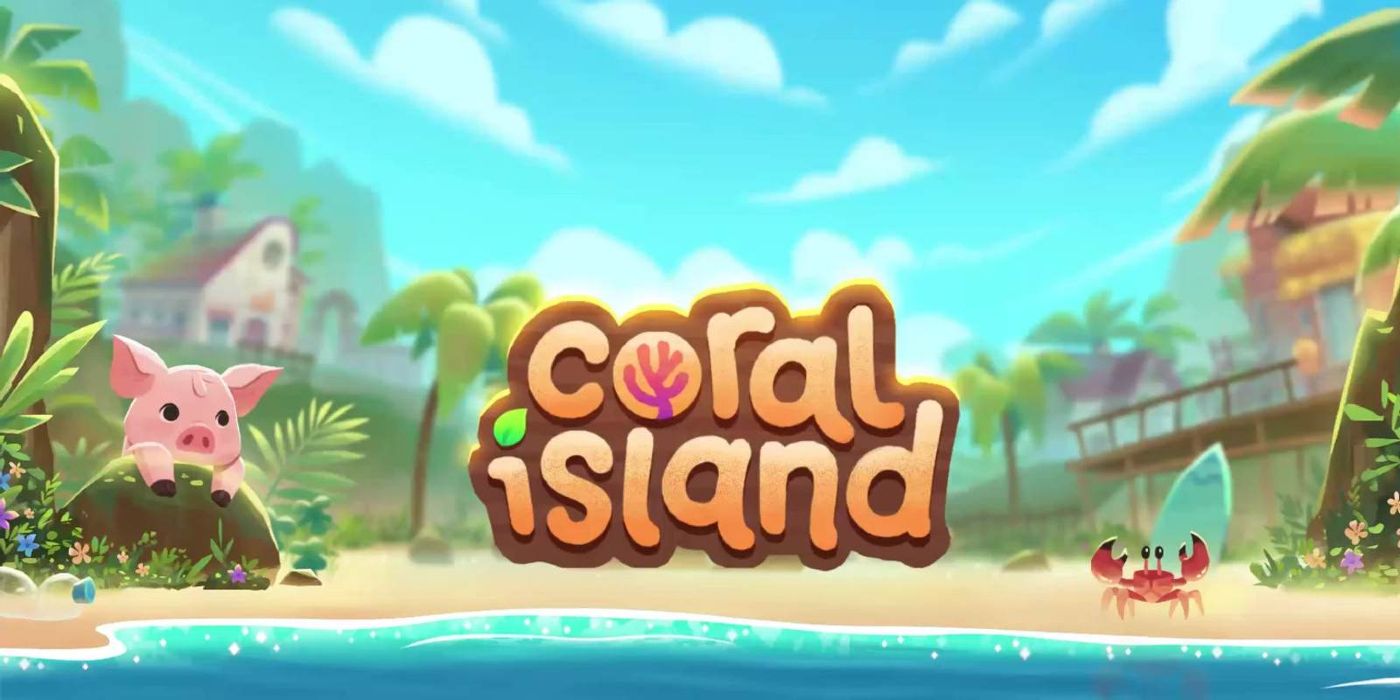First released in 2016, Stardew Valley has become one of the most popular games of all time, receiving almost universal acclaim and remaining a steadfast favorite among fans of farming and life simulations and RPGs. It is a game that continues to evolve with multiple large additions over the years that include a multiplayer mode and a 1.5 update. Being so amiable to modding has also ensured that Stardew Valley remains successful, allowing fans to expand upon both their farm and Pelican Town, and innovate existing features.
Developed solely by Eric Barone, known as ConcernedApe, Stardew Valley was inspired by the Harvest Moon series and it continues on its legacy. However, it has also developed a legacy of its own, surpassing its predecessor and inspiring countless games since its release. Farming and life simulation RPGs, as well as similar genres such as town-building RPGs, have been heavily influenced by Stardew Valley’s formula in terms of gameplay, character, tasks, and general aesthetic. There are many such games on the market, but few have truly managed to fully capture the spirit of Stardew Valley. Those that do, however, have managed to evolve the Stardew Valley formula in unique and interesting ways, building up fanbases of their own and offering something new to fans of the genre.
Stardew Valley's Appeal
It is easy for players to find the appeal in Stardew Valley; it offers a peaceful escape from real life and a chance to inhabit the quiet and productive life of a fictional farmer in a welcoming and spirited town. Its charming aesthetic, relaxing gameplay, and fascinating NPCs are some of the highlights of Stardew Valley and are part of the reason why it continues to appeal to fans of multiple different gaming genres. It encourages players to build up productive farms and also forge strong relationships with the people of Pelican Town.
On the surface, it is deceptively simplistic, but Stardew Valley is also a game that subtly provides critical commentary on real-life issues, too. Many of the NPCs struggle with relevant problems, referencing tough issues like alcoholism and depression. It also dives into a conversation about big businesses and their effect on local economies. Many similar games have followed in Stardew Valley's footsteps and woven these issues into their narratives, proving the influence this game has had. Upcoming releases, too, have centered their narratives around social, political, and environmental themes but in such a way that they fit seamlessly into the game's world, allowing players to immerse themselves in a fictionalized world while also keeping real-life issues at the forefront of the gameplay. The way in which Stardew weaves together its wholesome overall aesthetic with these tough themes is one of the reasons for its success, and why Stardew Valley serves as the essential blueprint for farming and life sims.
My Time at Portia, Littlewood, and Graveyard Keeper
My Time at Portia is one of the first popular life sim RPGs to emerge since Stardew Valley, and part of its popularity could easily be attributed to the surge of interest in this genre following on from Stardew Valley’s success. While the focus of the gameplay is on building and crafting more than farming it does share some similarities with Stardew, and the game has plenty of content to maintain players’ interest. Like many other town-building life sim games, My Time at Portia focuses on the player revitalizing a small town and becoming part of the community. Each of the town's residents have fleshed-out personalities and backstories, and there are many marriage candidates in the game, too. A follow-up game set to be released later this year entitled My Time at Sandrock brings players to a wild west setting in the same post-apocalyptic world.
Despite Stardew's success, there are a few places in which it falls short, and other games have attempted to improve and expand upon Stardew Valley's different features. Some fans of Stardew Valley have noted that the game struggles with slow gameplay when players are first getting started and some farming and life sim RPGs have sought to overcome this issue. One such game is Littlewood, which gives players immediate access to farming, mining, town management, and numerous quests. This helps to lure players into the game almost instantly. At the start of this game, the player wakes from amnesia after having saved the world and is now the mayor of Littlewood. This unique premise serves to differentiate Littlewood from other social simulators and to give it its own trademark charm. Littlewood places more of a focus on building up the player's town than Stardew does, and they have to unlock farming in their town using upgrades at the town office.
Inspired by Stardew Valley, Graveyard Keeper—despite its title—bears a notable resemblance to the farming sim in both its mechanics and overall aesthetic. Instead of farming, the player is tasked with graveyard maintenance, including the digging of gravesites and the burial of corpses. It also features foraging, fishing, and dungeon exploration. Due to its aesthetic similarity to Stardew Valley, Graveyard Keeper creates an intriguing juxtaposition between its charming appearance and the darker themes of death and violence it explores. It is also generally considered one of the best games for fans of Stardew Valley. What is perhaps most interesting about Graveyard Keeper is the way in which it completely transforms how players think of life simulation RPGs, showing the potential that this genre has.
Upcoming Releases That Continue Stardew Valley's Legacy
There are several upcoming titles that appear to pay homage to Stardew Valley in different ways. Cloudscape, the highly anticipated action-adventure farming and survival game was shaped by Stardew Valley. It also cites other titles such as The Legend of Zelda and Animal Crossing as inspirations and aims to combine together different aspects of what made these games so popular. Cloudscape's success on Kickstarter is evidence of how popular this type of game continues to be.
Farming and life simulation games have clearly undergone a surge in popularity lately as there are numerous games set to launch over the course of the next few months that aim to modernize the genre. Coral Island, inspired by Stardew Valley, is the perfect example of how this genre can transform to stay relevant. It takes the traditional farming elements but spins them into something new so that while players grow crops, raise animals, and befriend members of the community, they will also be able to undertake tasks to save the coral reef and protect the environment. It continues on the now-popular theme of reviving old communities, something clearly influenced by Stardew Valley's legacy.
Palia is another upcoming title that has been pitched as a Stardew Valley-style game but with the scope of an open-world RPG. It is a community-based MMO centered around home decoration, farming, fashion, and befriending other characters. Interestingly, many new Stardew Valley-style games have begun to incorporate more of these open-world concepts, such as the upcoming Harvest Days. It proves that these games still have so much potential to innovate and grow and that they are not nearly as simple as they might appear on the surface. Fans can therefore expect to see many more interesting and imaginative titles shaped by the legacy of Stardew Valley as its legacy continues to evolve and expand even further.
Stardew Valley is available for Mobile, PC, PS4, Switch, and Xbox One.




